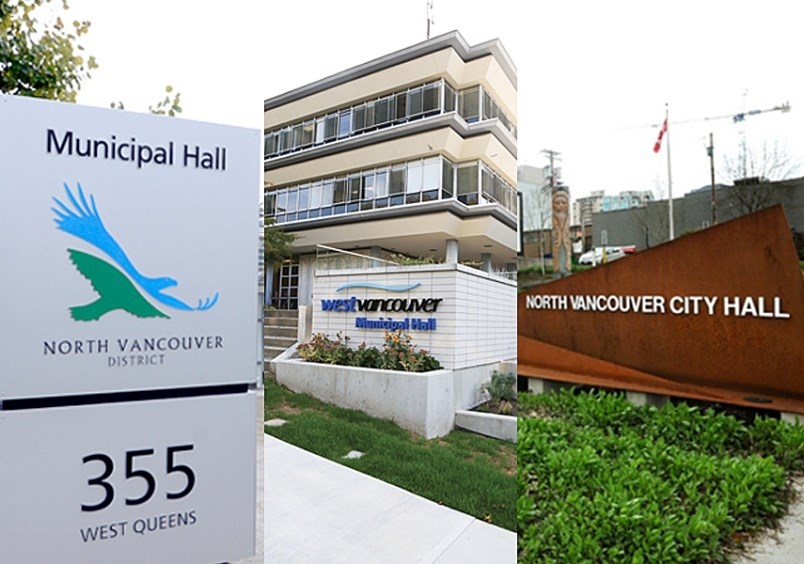It’s 2020!
Arguably, that’s not as meaningful as the turnover from 1999 to the Millennium, but for those who are into symbols, 2020 packs plenty of portent.
As if we needed another reminder, this is a time when a keen global vision is desperately needed. Instead we’re succumbing to a willful instinct to look back to a less complicated time when everything was peachy.
Needless to say, such a time never existed, but for many, it’s preferable to the fierce unknowns we face in the future.
Here on the North Shore, we can hope that 2020 will inspire a sharper focus on the road ahead. But first we’ll have to get North Van District council to open its eyes, and then perhaps its mind will follow. So far, though, it has beaten a breathtaking retreat from the 21st century.
In two of the three councils elected to govern the North Shore in 2018, it’s pretty much business as usual. But somehow, district voters managed to elect a singular coalition of do-nothings. It’s easy to assume that they were elected as an antidote to the previous council, which was, if not exactly developer-friendly, open to the concept of development.
In their public pronouncements, the councillors see themselves as an anti-development council. Coun. Megan Curran once famously declared that the entire North Shore is endangered, and she’s there to protect it from being trampled by civilization. Her colleagues may not be quite so dramatic, but for various reasons want to see development to proceed at a pace that doesn’t stretch or strain the infrastructure or increase traffic. And they’re concerned that too many luxury condos are being built and demand only affordable housing.
Therefore, everything needs to be put on hold while the official community plan is reviewed, even though it was just reviewed, a process that took two years and featured 75 open houses, public and stakeholder workshops, coffee shop talks, town hall meetings, and telephone, online, and event surveys. Not good enough.
For this council, in short, there are many reasons to oppose development and damn few to support it. Taken on an individual basis, their concerns have merit – of course it makes sense to build affordable housing while protecting the environment, making sure that projects proceed within the context of a coherent plan. But the net effect of negativity is that development in the district is frozen while it continues merrily all around it in the City of North Vancouver and the District of West Vancouver.
How is this a vision for the 21st century on the North Shore? How are we going to handle the million or so people who will move to Metro Vancouver by 2040?
For one example: If you reduce the supply of new housing, demand will drive up the price of existing real estate and voila: housing becomes less affordable. And that has an impact not only in the district, but across the North Shore. Planning? What planning?
This is the point where I reintroduce my favourite idea: amalgamation. I can’t think of one good reason why the City and the District of North Vancouver exist as separate entities, complete with their own set of bylaws, bureaucracies and community plans. Especially when they seem to proceed as if the neighbouring community doesn’t actually exist, except as a nearby inconvenience.
Need I remind the politicians that a survey, taken just before the last municipal election, shows a surprising level of support for the idea of amalgamation? When asked if the city and district should investigate the costs and benefits, 86 per cent said yes. Ironically, support was higher in the district at 91 per cent than the city, still up there at 82 per cent.
Perhaps the most significant finding was that 86 per cent of respondents considered themselves citizens of North Vancouver, without any distinctions.
This was a scientific representative sample, arguably a more accurate reflection of the will of the people than the municipal election, in which roughly one in three voted.
I’m not kidding myself that there will be any action on amalgamation in 2020. The two North Vancouver councils are even less compatible than the pre-2018 election versions. But 2020 calls for a new clarity, so wouldn’t it be something if North Vancouver politicians recognize that their own vision is clouded by parochial concerns and begin to work together to come together?
I’d even settle for an optical illusion: we’ve got to start somewhere.
Journalist and communications consultant Paul Sullivan has been a North Vancouver resident since the fall of the Berlin Wall and the rise of Madonna. [email protected]
What are your thoughts? Send us a letter via email by clicking here or post a comment below.



